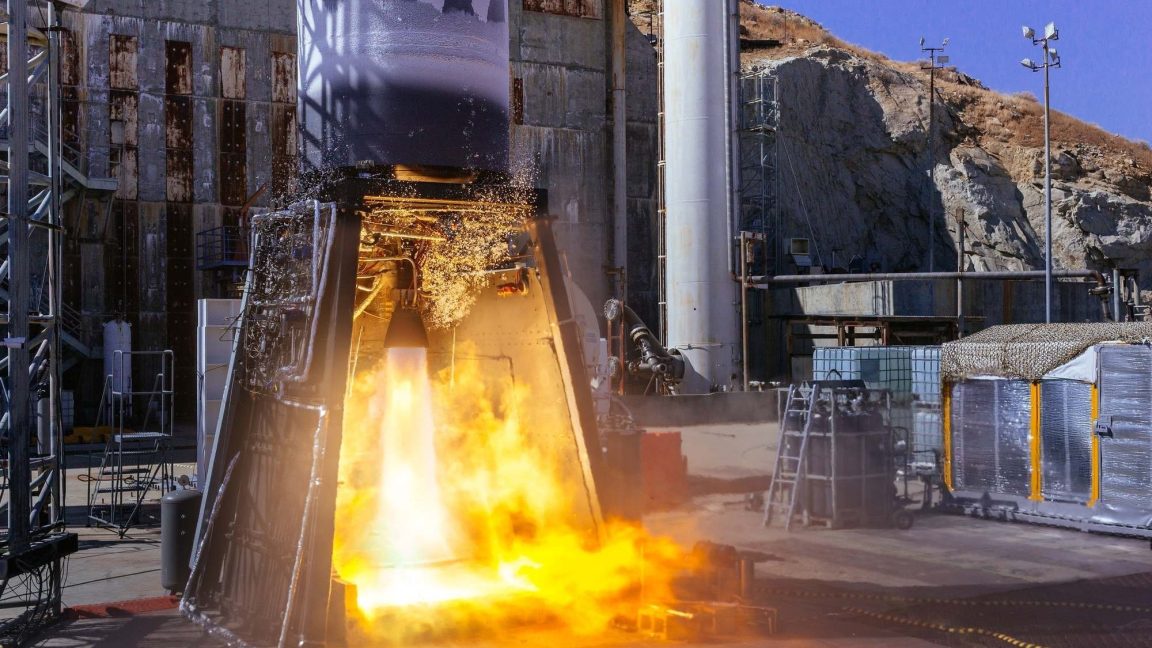ARSTECHNICA.COM
As ABL Space departs launch, the 1-ton rocket wars have a clear winner
Anything but launch As ABL Space departs launch, the 1-ton rocket wars have a clear winner "Our path to making a big contribution as a commercial launch company narrowed considerably." Eric Berger Nov 15, 2024 10:39 am | 15 Hot fire test of integrated second stage for ABL Space System's RS1 rocket in the fall of 2020. Credit: ABL Space Systems Hot fire test of integrated second stage for ABL Space System's RS1 rocket in the fall of 2020. Credit: ABL Space Systems Story textSizeSmallStandardLargeWidth *StandardWideLinksStandardOrange* Subscribers only Learn moreA 7-year-old launch company that has yet to have a rocket successfully lift off announced a radical pivot on Thursday. Its new plan? Focusing on missile defense.The founder and president of ABL Space Systems, Dan Piemont, announced the decision on LinkedIn, adding, "We're consolidating our operational footprint and parting ways with some talented members of our team." He said companies interested in hiring great people in Los Angeles or Mojave, California, should reach out.A bright beginningWith a background in economics and physics, Piemont founded ABL in 2017 with the aim of developing a ship-and-shoot rocket. The idea was to set up mobile ground systems in remote locations on short notice and launch on demand for the US military and other customers.Piemont proved successful at raising money, bringing hundreds of millions of dollars into the company, including from Lockheed Martin. At one point the private company was valued at $2.4 billion, and in 2021 Lockheed purchased a block buy of up to 58 launches of the RS1 vehicle. This rocket was intended to carry up to 1.35 metric tons to low-Earth orbit.ABL made its first RS1 launch attempt in December 2023 from Kodiak, Alaska, but a catastrophic fire shortly after liftoff quickly doomed the rocket. A second attempt was precluded in July of this year after an explosion during a static-fire test in Alaska. The company laid off some of its staff in August to control costs."From a personal perspective, if youve never been a part of something like that, it can be difficult to understand the magnitude," Piemont said of these two launch campaigns. "Physically taxing operations happen at all hours across many sites. Seemingly insurmountable problems arise every week, and are overcome. The accomplishments of the RS1 programfrom the individual level to the company levelhave been unbelievable."Shifting launch marketAs the company was failing in its efforts to reach orbit, the launch market was also changing, Piemont said. Although not directly mentioning SpaceX and its Falcon 9 rocket, Piemont said ABL's ability to impact the launch industry has diminished over the last seven years."Take a look around," Piemont wrote. "US rockets fly every couple of days, with perfect success. Its revolutionary. While there is still a need for more providers in certain market segments, those opportunities are decreasing. To succeed in such a demanding effort as scaling up an orbital launch program, you need deep motivation around your mission and potential impact, from many stakeholders. As the launch market matured, those motivations thinned and our path to making a big contribution as a commercial launch company narrowed considerably."Over the last half decade or so, three US companies have credibly vied to develop rockets in the 1-ton class in terms of lift capacity. ABL has been competing alongside Relativity Space and Firefly to bring its rockets to market. ABL never took off. In March 2023, Relativity reached space with the Terran 1 rocket, but, due to second-stage issues, failed to reach orbit. Within weeks, Relativity announced it was shifting its focus to a medium-lift rocket, Terran R. Since then, the California-based launch company has moved along, but there are persistent rumors that it faces a cash crunch.Of the three, only Firefly has enjoyed success. The company's Alpha rocket has reached orbit on multiple occasions, and just this week Firefly announced that it completed a $175 million Series D fundraising round, resulting in a valuation of more than $2 billion. The 1-ton rocket wars are over: Firefly has won.Focusing on defenseJust as Relativity pivoted away from this class of rocket, ABL will now also shift its focusthis time in an even more radical direction.US Defense spending on missile production and defense has skyrocketed since Russia's invasion of Ukraine in 2022, and ABL will now seek to tap into this potentially lucrative market."We have made the decision to focus our efforts on national defense, and specifically on missile defense technologies," Piemont said. "Well have more to share soon on our roadmap and traction in this area. For now, suffice to say we see considerable opportunity to leverage RS1, GS0, the E2 engine, and the rest of the technology weve developed to date to enable a new type of research effort around missile defense technologies."Eric BergerSenior Space EditorEric BergerSenior Space Editor Eric Berger is the senior space editor at Ars Technica, covering everything from astronomy to private space to NASA policy, and author of two books: Liftoff, about the rise of SpaceX; and Reentry, on the development of the Falcon 9 rocket and Dragon. A certified meteorologist, Eric lives in Houston. 15 Comments Prev story
